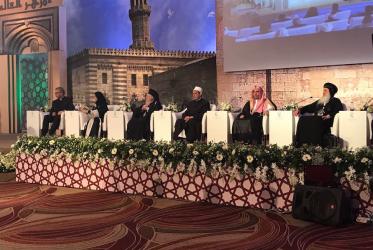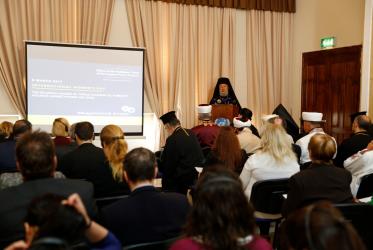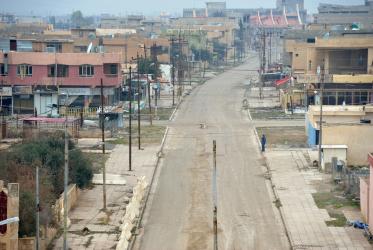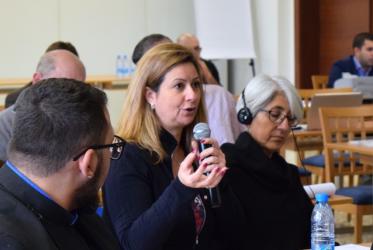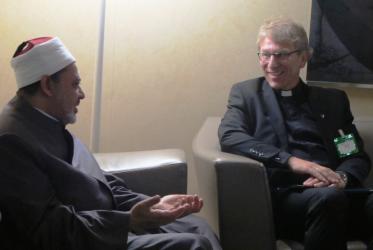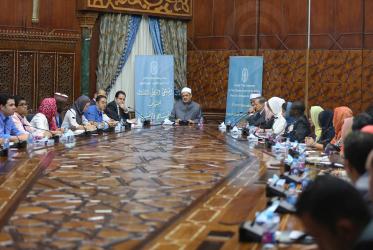Displaying 141 - 160 of 243
In Lebanon, refugees face hardship - but find hope
16 March 2017
WCC gravely concerned over Israel’s travel ban
09 March 2017
“Overcoming economic injustice” vision of WCC’s Athena Peralta
23 February 2017
“There are no strangers here” – Saint Irenaeus a key to unity?
19 December 2016
‘No Christmas bells in Mosul’ for a third year, says Assyrian priest
14 December 2016
From Bethlehem, WCC general secretary: “Together we are stronger”
08 December 2016
Churches’ diaconal action in the Middle East analyzed
01 December 2016
WCC fields inter-Orthodox response to convergence text
17 October 2016
Dialogue flourishes between WCC, Muslim Council of Elders
30 September 2016
WCC general secretary reflects on peace in Palestine and Israel
20 September 2016
Seminar will address youth engagement, religion and violence
19 August 2016
Pilgrimage and youth
28 June 2016
